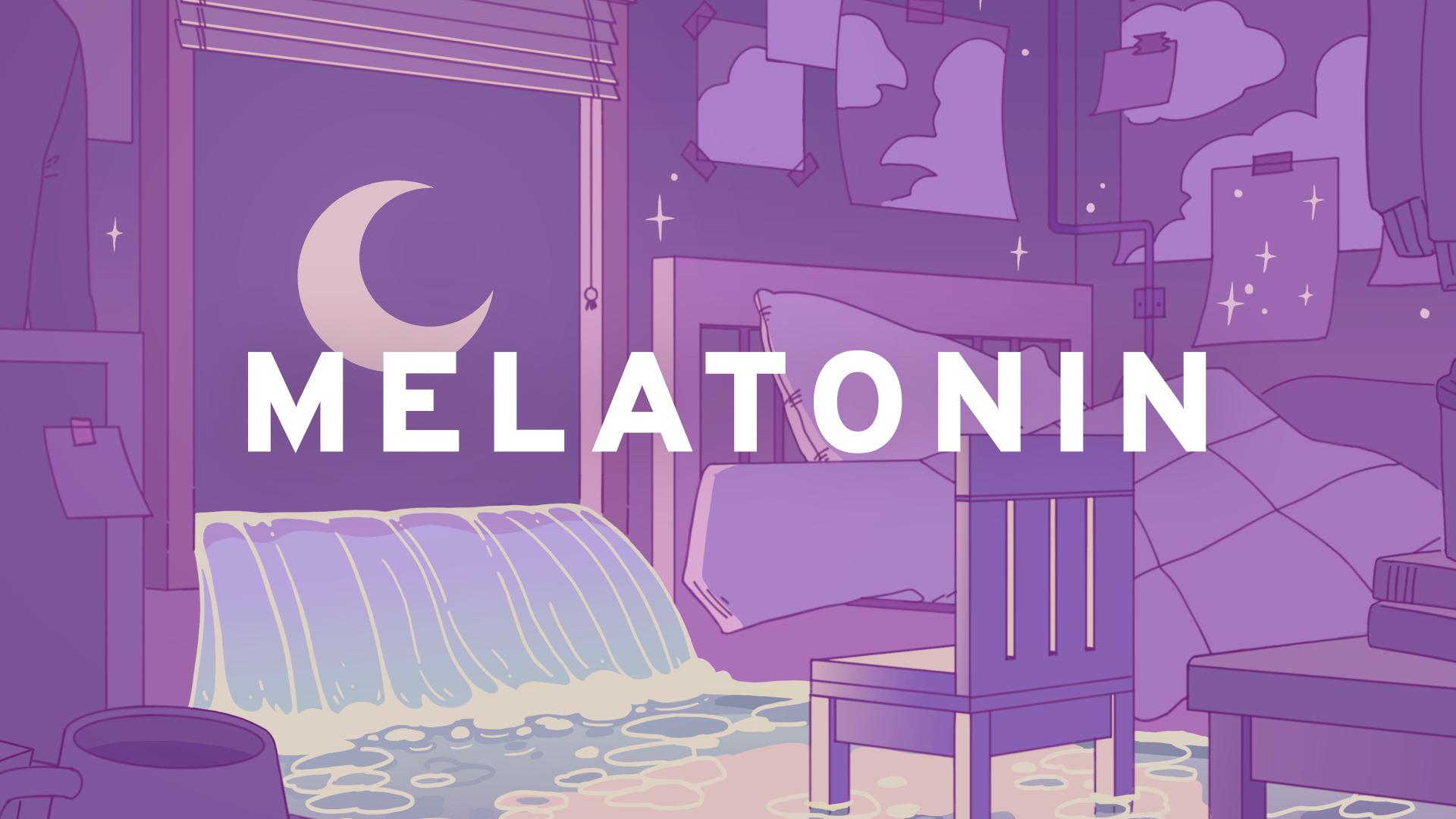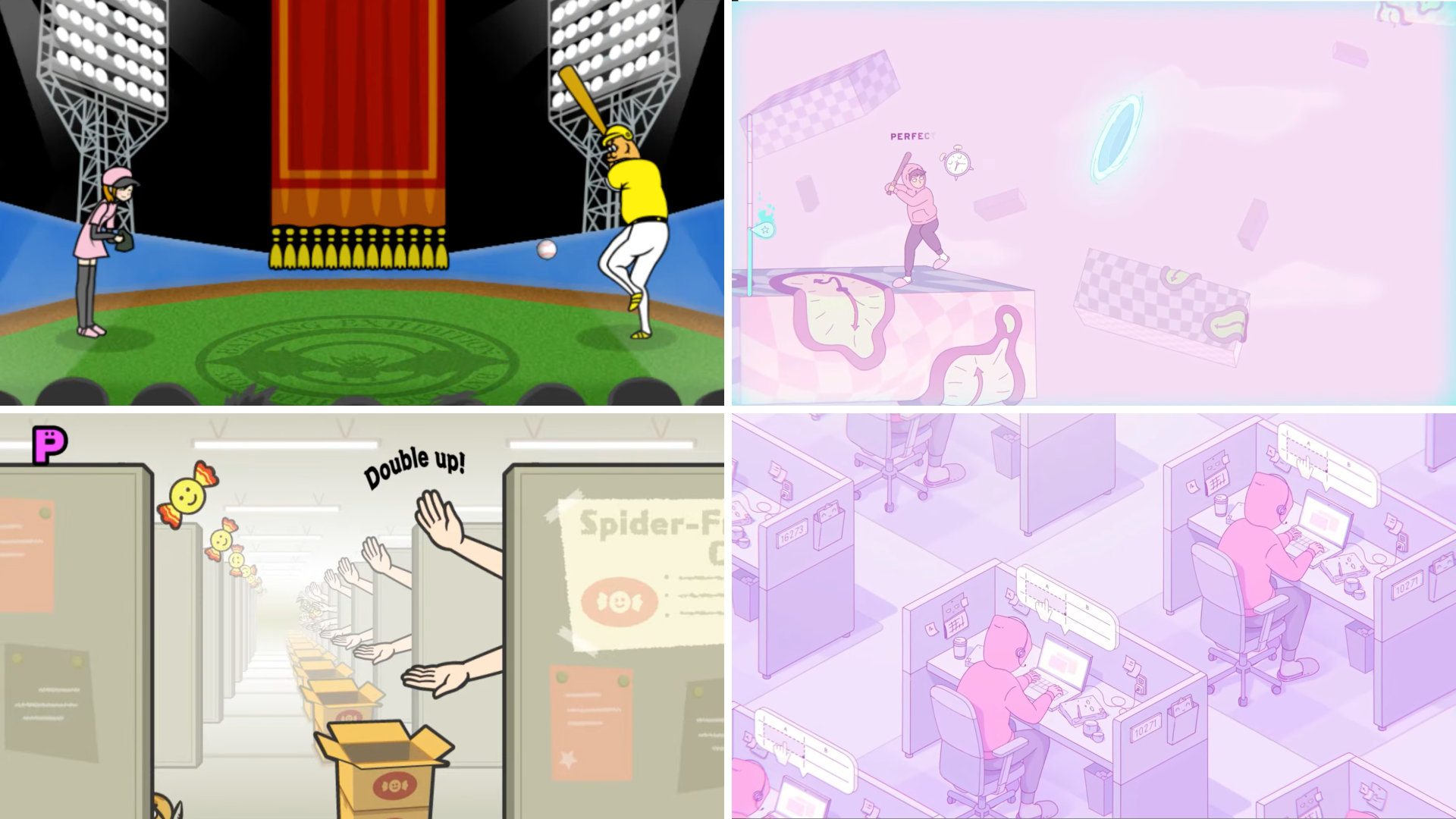The dream of any Rhythm Heaven fan.

Within the fairly crowded space of 2000s video games in the rhythm genre, Nintendo's Rhythm Heaven series stood out for its memorable scenarios, which have the player aid various quirky characters by timing their button presses in synch to the music.
But with the series going on hiatus after Rhythm Heaven Megamix (2015) and only making its return with Rhythm Heaven Groove (2026), there was a lot of time where fans of its charm and style didn't get to play a lot of new content... Aside from one notable indie game project, which will be the subject of today's article.
Finding Your Beat
The first Rhythm Heaven – released only in Japan and thus also known as Rhythm Tengoku – came about when a 2002 drum tech demo for the Game Boy Advance by Kazuyoshi Osawa was combined with a 2004 pitch of singer and producer Tsunku for a rhythm game that did not rely on visual cues (in the sense of "press A now"), instead having players react to presented scenarios in time with the background music.
The game would be developed by the same team at Nintendo which co-produced the WarioWare games, who injected the eventual 2006 release (making it the company's very last Game Boy Advance game) with the same creative and absurdist charm present in the former's micro games. The fun rhythm-based mini games in tandem with an extremely memorable soundtrack allowed the game to instantly garner a cult following.
Rhythm Heaven would then be brought to the West with entries on Nintendo DS (2008), Wii (2011) and 3DS (2015) which were meant to highlight its appeal to casual gamers while not letting up on the creativity. Unfortunately, during the 2010s, general demand for rhythm games and thus commercial potential slowly faded (proving fatal for series like Patapon), which – combined with internal restructuring efforts at Nintendo – meant that fans of the series were left hanging.
Planning A Rehearsal
While there were some attempts to imitate the franchise during the time it was still active, like Beat City (2010) and Beat Sneak Bandit (2012), these are often disparagingly referred to as rip-offs, whereas rhythm game fan David Huynh set to out to create a game which was a clear homage to Rhythm Heaven games without simply imitating them.
During development, which marked the debut of the Canadian indie game designer also going by the name Half Asleep, he prototyped levels with placeholder music to get pacing and mechanics feeling right, then brought in composers to write custom tracks. As he says, the goal was for music, visuals, and gameplay to feel tightly interwoven with minimal UI clutter, echoing the design goals of Rhythm Heaven.
Gameplay similarities do not extend to the stage concepts and visual presentation though, which moreso drew from animated series like Mob Psycho 100 or Adventure Time. The final product, a game called Melatonin, was released in December 2022 on Steam and Nintendo Switch as well as PlayStation 5 on March 2024.
An Excellent Performance

Melatonin, in its core, is a rhythm game about dreams blending with reality, where players sync button presses to music guided by animations instead of overlays, just like in the games it draws inspirations from. It spans five chapters with over 20 levels, offering a Practice mode, assist options and more. The visuals are hand-drawn in dreamy pastels, while music and gameplay are designed to feel seamlessly connected.
The game follows a protagonist struggling with insomnia, whose daily anxieties appear transformed into dreamlike rhythm challenges. Each chapter begins with a glimpse of their cluttered living room, before sliding into surreal dreamscapes. The story is minimal and interpretive, relying on imagery and mood instead of dialogue or exposition. In general, the game relies far more on atmosphere than on the wacky characters of Rhythm Heaven.
During play, prompts vanish after practice, leaving timing to audio and visual cues like flashes or color shifts. Players are scored as Early, Perfect, or Late, earning stars to unlock new chapters. Advanced stages introduce medleys, harder rhythms, and input variations. Along with Hard Mode, there's also a level editor, something that was coincidentally also released in 2022 for the Rhythm Heaven games via the Unity fan game engine Heaven Studio.
Ready For An Encore
Melatonin was met with overwhelmingly positive reception upon release. Critics lauded its art, music and minimal UI, while most criticism centered on its brevity and occasional difficulty spikes. Although exact sales figures are not publicly disclosed, strong community praise, a vinyl soundtrack release with iam8bit, and the later PlayStation 5 port suggest that it turned out a worthwhile investiment for Half Asleep.
Accordingly, David Huynh has expressed ambitions to expand the team and create more "dreamy games" beyond this single title. Additionally, Huynh has shown interest in elaborating on the level editor features, gathering community feedback to evolve mechanics, and possibly exploring new platforms or follow-up projects inspired by the aesthetic and rhythmic principles he established with Melatonin.
As for Rhythm Heaven, we're glad to report that after years of silence, Nintendo finally announced a successor in March 2025 with Rhythm Heaven Groove, which is set to release sometime in 2026. Due to Huynh's smart decision to make his game tonally and stylistically distinct from its inspiration, we can certainly envision a future where the two franchises coexist.


































